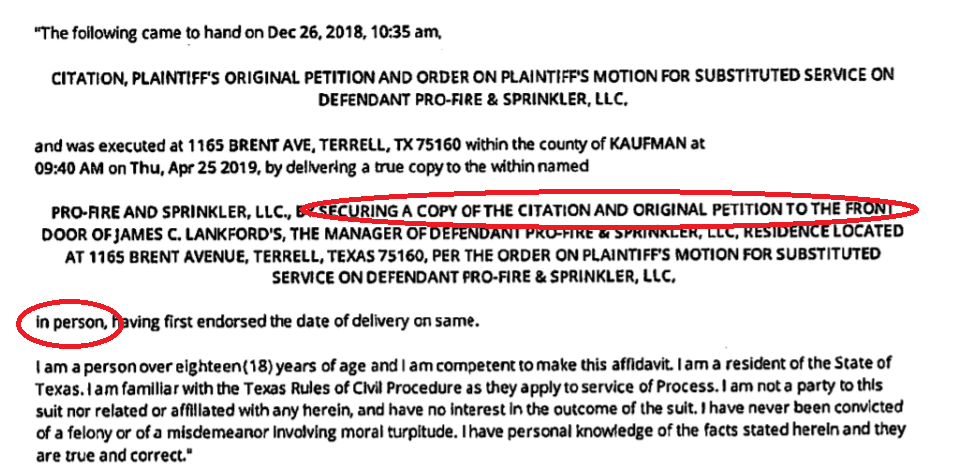Brown v. Joe Jordan Trucks, Inc. involved a claim that the wrong Frederick Altyman Brown may have been named in the citation by the elimination of “, Jr.” after the defendnant’s name. The Fifth Court disagreed:
In the present case the petition, citation and return all identify the defendant as “Frederick Altyman Brown.” The designation or suffix “Jr.” is a nonessential part of the defendant’s name for purposes of service of process, and the omission of said designation or suffix does not render the defendant’s name misstated, rather the omission merely renders the defendant’s name abbreviated in a common form.
No. 05-23-00676-CV (June 20, 2024) (mem. op.).








